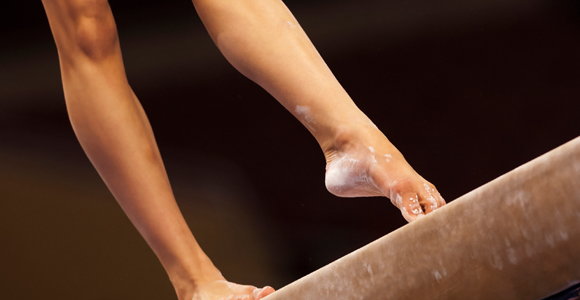Are the Olympics piquing your curiosity in how your diet differs from Olympic athletes? Well, here's the truth: they're actually pretty similar, except most Olympians need more nutrients because they're exercising constantly. Are you looking for your own Olympic-sized diet? Well, read on...
Caloric Needs
Most of us only need a maximum of 2,000 calories per day, even with routine exercise. Olympians who have rigorous workout and practice schedules need many more calories, sometimes two to three times the recommendation. However, caloric needs vary widely depending on the type of sport the athlete participates in. For example, male swimmers take in a lot of calories while small female gymnasts really watch portions and control intake of calories. In addition to swimmers, a lot of track athletes need many more calories as they're burning them at a much faster rate. Some suggest packing in smoothies to increase calories, as well as incorporating vitamins and minerals into an athlete's diet, especially if time is an issue.
Protein Needs
All athletes need plenty of protein to meet their daily requirements, in addition to aiding in repair of muscles. Weightlifters are a great example: their diet is similar to a female gymnast's, but in larger portions and with more protein. For instance, breakfast would probably consist of eggs and toast for a gymnast, but a weightlifter would have more of each with a greater emphasis on protein.
Carbohydrates
Carbohydrates are very important to certain athletes who burn a high amount of calories. This would include swimmers and track athletes. Carbohydrates provide a good source of energy that will help an athlete sustain his/her stamina as well as providing some necessary calories to replenish what he/she has lost while training. The key to carbohydrates is that athletes still need to choose complex carbohydrates: whole grains, fruit and vegetables, and low fat carbohydrates. 
Fresh Foods
It's also important to avoid the processed foods that we've become accustomed to. A lot of Olympic athletes are cooking their own meals with fresh, unprocessed ingredients. This helps determine portions, as well as limiting salt and fat intake. While calories are important, athletes still don't want an excess of high fat, processed junk foods since it won't provide the right balance of nutrition needed for their bodies. Fresh fruit and vegetables are extremely important because they provide a source of natural vitamins and minerals the body needs. Many Olympic athletes incorporate these low calorie foods as part of a smoothie with protein powder to meet their daily requirements.
Rhea Li is a Registered Dietitian who received her Bachelor's degree in Nutrition and Master's degree in Public Health from the University of Texas. She has a special interest in working with children and has received her certification in pediatric weight management. Currently, she is working on a research study to determine the importance of nutrition in pediatric cancer patients. In the past, she has worked with pregnant women and their children. In her spare time, she enjoys being with family, exercising, traveling and of course, eating. To contact Rhea, please visit dazzlingdietitian.blogspot.com or her Twitter account, Rhea_Li.



